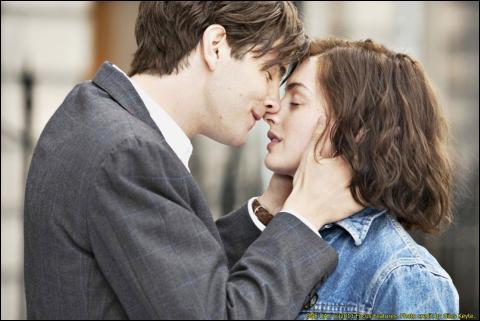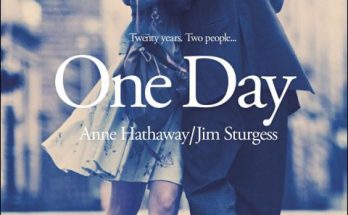“The wit of David Nicholls’ writing appealed to me,” says One Day director Lone Scherfig. “But what compelled me was just how much of a real love story the piece is – and at a level you rarely come across.”
“It is a love story,” affirms David Nicholls, the author of the internationally praised bestselling 2009 novel One Day and also the screenwriter of the 2011 movie adaptation One Day. “It’s also about friendship and family, nostalgia and regret, and the way that our hopes and dreams don’t quite come true – at least, not in the way that we’re expecting them to. There is a bittersweet quality to it.
“I wanted to write an old-fashioned – I suppose it is that – romance showing the ups and downs of a relationship over a long period of time.”
Nicholls spent two years working on the novel. “I was writing other things alongside it,” he notes. “Also, it required a lot of planning beforehand, like a jigsaw puzzle; planting seeds in one year of the story that turned into plot points in another. I had to work out what was going to happen on the many July 15ths. I didn’t write One Day as a screenplay in disguise but I love writing dialogue and fiction, so perhaps inevitably there was a filmic quality.
“Writing One Day was a real pleasure. I wrote the first half and then took a break from it for about six months; then went back to revise the first half and carried on to the second half.”
Film producer Nina Jacobson, well-versed in recognizing books’ potential as movies and shepherding them to the screen, was struck by how much One Day affected her as she read it. She says, “I fell in love with the characters. The story is very universal. These characters, Emma and Dexter, and their journey truly speak to the way in which you transform after graduating from college and living your life; who you are then, and who you are twenty years later.
“It takes us time to grow up and until we do, we can’t necessarily be with the person we’re meant to be with. That time is necessary, yet it’s also something you can’t get back. So there is a wistful tone to the story.”
Seeing the novel’s potential as a classic movie romance, she worked to secure the film rights – promising Nicholls that she would keep the story within its original British setting while he adapted the book into a feature script. “Nina has been a great champion of the story,” says Nicholls. “She is a force of nature! I’m amazed that it all came together so quickly.”
Jacobson offers, “At many studios, the inclination would be to Americanize it and not to keep the U.K. setting and keep the characters British. To me, that would have meant compromising the specificity of the book and the singularity of the characters; the setting is part of the appeal.
“We sought out creative partners whose inclination would be to not make that change.” The film was soon set as a co-production in the unique partnership of Random House Inc.’s Random House Films division and Focus Features, with the U.K.’s Film4 co-financing. The security engendered by this confirmed backing early freed up the filmmakers to concentrate on getting the movie made.
The writer had made the page-to-screen progression before, as his novel Starter for Ten became the movie Starter for 10. The narrative of One Day was more ambitious but, as Nicholls reflects, “There’s a challenge involved in trying to condense twenty years of a character’s life into a novel anyway. When you have to condense it even further, into maybe two hours of screen time, you just have to accept the fact that you’re going to lose things. Having said that, One Day is a very faithful adaptation in terms of both the mood and the tone – as well as the storytelling style.”
Jacobson clarifies, “Dex and Em are seeing each other more than that one day a year, but we are seeing them once a year. That’s how it is in the book, and in the movie as well. “With him being the writer first and last you always knew that even if you had to condense, say, three different bits of the book into two pieces of the movie, that the big themes of romance – and Dex and Em’s respective emotional and spatial journeys – would absolutely still come through.”
Talk of directors soon turned to Lone Scherfig, whose film An Education was then becoming one of the most-discussed pictures of the year, ultimately receiving 3 Oscar nominations including for Best Picture. But Nicholls and Jacobson had also seen the director’s earlier features Italian for Beginners and Wilbur Wants to Kill Himself, and well remembered them.
Nicholls comments, “It was clear that the qualities she has as a director were ones that One Day was going to need; integrity, and a sense of how to modulate the highs and lows of the story.”
“Lone was our first choice for the movie,” says the producer. “You watch her films, and you see how she has an incredible command of character and of performance, and of the intimate moments between people.
“We knew that she would find the nuances in the characters and their evolution, and communicate all of that while capturing time and place – without losing sight of Emma and Dex as the essence of the story. It would be a matter of conducting the orchestra while making sure the melody didn’t get lost.”
Hext Page: Anne Hathaway and Her Interpretation
Hits: 23



